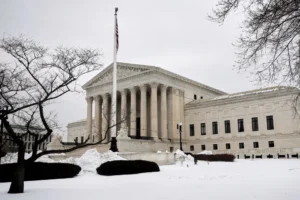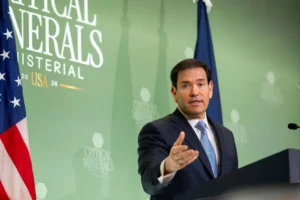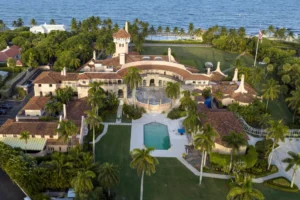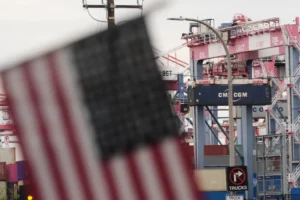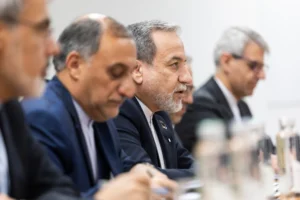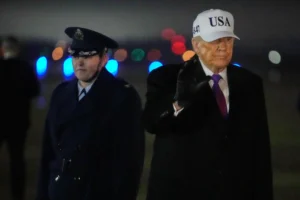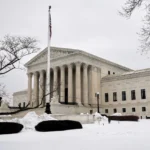U.S. Supreme Court Rules to Uphold Indian Child Welfare Act
Supporters in Wyoming say landmark decision will strengthen Native families, sovereignty
- Published In: Politics
- Last Updated: Jun 17, 2023
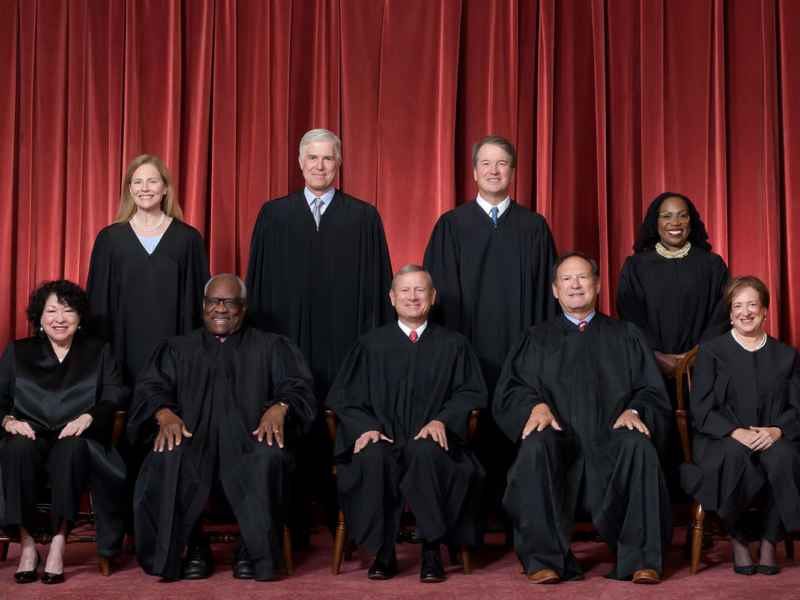
The U.S. Supreme Court upheld the Indian Child Welfare Act this week. Pictured in the front row (left to right) are Justice Sonia Sotomayor, Justice Clarence Thomas, Chief Justice John G. Roberts, Jr., Justice Samuel A. Alito, Jr. and Justice Elena Kagan. Pictured in the back row (left to right) are Justice Amy Coney Barrett, Justice Neil M. Gorsuch, Justice Brett M. Kavanaugh and Justice Ketanji Brown Jackson. (Courtesy of Fred Schilling, Collection of the Supreme Court of the United States)
By Shen Wu Tan
Special to the Wyoming Truth
The U.S. Supreme Court ruled 7-2 on Thursday to uphold the Indian Child Welfare Act (ICWA) amid challenges from a birth mother, foster and adoptive parents and the state of Texas who questioned the constitutionality of the law.
Some Native Americans in Wyoming lauded the court’s decision, calling it a win for preserving the rights of indigenous people.
“I’m just relieved to hear that the law has been upheld because it’s critical for tribes to maintain their existence, and this is one big part of it,” John St. Clair, chairman of the Eastern Shoshone Business Council, told the Wyoming Truth. “The policy of removing Indian children from families goes back, before the turn of the century, during the assimilation period. Children were removed and sent to boarding schools as part of that policy…. The removal of children was also done by, in the state courts.”
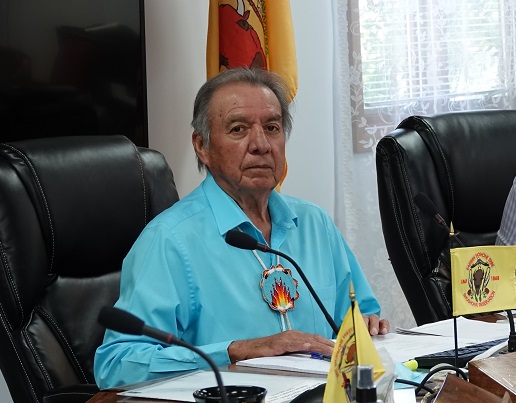
In Haaland v. Brackeen, the court notes that the petitioners sought an injunction to prevent federal parties from enforcing ICWA and a “declaratory judgment” that the act violates the Constitution on multiple grounds. They argued ICWA surpasses federal authority, discriminates on the basis of race and infringes on states’ autonomy.
“…We affirm the judgment of the Court of Appeals regarding Congress’s constitutional authority to enact ICWA,” the court opinion states. “The individual petitioners argue that ICWA injures them by placing them on ‘[un]equal footing’ with Indian parents. Under ICWA’s hierarchy of preferences, non-Indian parents are generally last in line for potential placements.”
Justice Amy Coney Barrett delivered the opinion of the court. Chief Justice John G. Roberts, Jr. and Justices Sonia Sotomayor, Elena Kagan, Neil M. Gorsuch, Brett M. Kavanaugh and Ketanji Brown Jackson joined the opinion. Justices Clarence Thomas and Samuel A. Alito, Jr. filed dissenting opinions regarding the case.
Origins of the case
Enacted in 1978, ICWA provides guidance for cases of child abuse, neglect and adoption involving Native American children. Under ICWA, a tribal court has exclusive jurisdiction over all child custody proceedings, including adoptions and foster care proceedings, if an Indian child lives on a reservation. State and tribal courts exercise “concurrent jurisdiction” for other Indian children, but the state court is sometimes required to transfer the case to tribal court.
State child welfare and private adoption agencies removed an estimated 25% to 35% of all Native American children from their homes, research has found. About 85% were placed outside of their families and communities before ICWA was enacted in 1978, according to the National Indian Child Welfare Association.
The Supreme Court case emerged from three separate child custody proceedings governed by ICWA.
New Mexico residents Chad and Jennifer Brackeen successfully adopted an Indian child they’d fostered; the child’s biological mother belongs to the Navajo Nation and father is a member of the Cherokee Nation. They also seek to adopt the child’s biological sister, but face opposition from the Navajo Nation.
Nick and Heather Libretti were chosen as adoptive parents for the daughter of Altagracia Hernandez, who is not Native American. The girl’s birth father is descended from members of the Ysleta del Sur Pueblo Tribe and once supported the adoption. Since the child is an enrolled tribe member, the tribe intervened and argued that the girl should be moved from the Librettis’ home in Nevada to the tribe’s reservation in El Paso, Texas. However, the tribe withdrew its challenge after the Librettis and Hernandez joined the lawsuit, allowing the couple to finalize the adoption.
Minnesota residents Jason and Danielle Clifford fostered a child whose maternal grandmother belongs to the White Earth Band of Ojibwe Tribe. The couple tried to adopt the girl, but the tribe intervened and claimed she was eligible for tribal membership. Minnesota then placed the girl with her maternal grandmother who lost her foster license due to a criminal conviction. The Cliffords pursued the adoption, but the court denied their motion.
Some of the petitioners who challenged the ICWA plan to foster and adopt Indian children in the future, hence their decision to stay involved with the litigation.

“Decisions about child custody, foster care, and adoption are core state functions,” Alito wrote in his dissenting opinion. “The paramount concern in these cases has long been the ‘best interests’ of the children involved. But in many cases, provisions of the Indian Child Welfare Act (ICWA) compel actions that conflict with this fundamental state policy, subordinating what family-court judges — and often biological parents — determine to be in the best interest of a child to what Congress believed is in the best interest of a tribe. The cases involved in this litigation illustrate the distressing consequences.”
Wyomingites respond to ruling
Sergio Maldonado, a member of the Northern Arapaho Tribe, applauded the court’s decision to keep ICWA intact. “It is about time that tribal sovereignty is fully recognized as an inherent right that precedes America’s arrival and their governments,” he said.
Each year, the Wyoming Department of Family Services handles about 25 to 30 ICWA cases.
“The Supreme Court decision issued today allows us to continue operating as we have been, recognizing the role of tribal nations and culture in our child welfare system, both within Wyoming as well as those tribal nations we work with in other states,” said Lindsey Schilling, social services senior administrator for the department.
Ahead of the Supreme Court decision, Wyoming took action to protect ICWA. In March, Wyoming Gov. Mark Gordon signed Senate Enrolled Act 89 that codifies the requirements listed in the Indian Child Welfare Act (ICWA) into state legislation.
In February, Gordon also signed a law that establishes a state ICWA task force to study the federal act and Wyoming’s and other states’ legislation.
Rep. Lloyd Larsen (R-Lander), a member of the Indian Child Welfare Act Task Force, said since the Supreme Court upheld ICWA, the task force will consider whether to follow the federal ICWA or amend the state ICWA to include more provisions.
“Are we okay leaving the federal ICWA in place and do what we’ve done historically and call it a day?” he said. “Or do we consider what other states have done to reinforce the intent of ICWA? And we will certainly hear thoughts on both.”

